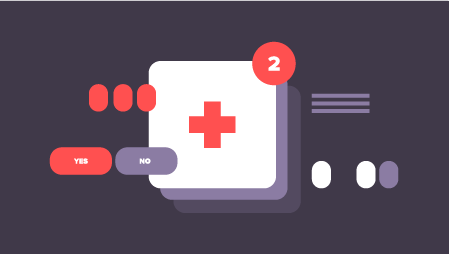At New York’s Memorial Sloan-Kettering Cancer Center (MSKCC) serious efforts have been made to exploit big data technology to fight a disease that strikes one in three women and one in two men during their lifetimes. In this prestigious cancer research and treatment center, IBM Watson applies the power of big data technology to enable evidence-based, diagnosis and treatment for cancer patients. This system dramatically reduces the cancer research time-cycles, and enhances quality of cancer treatment.
Common problems in cancer research
Research states that patient-care information nearly doubles in volume within a span of five yearsso, it is clear why cancer researchers, clinical-trial experts, and doctors are overwhelmed with the flood of information steering research guidelines and best practices in cancer. Although MSKCC regularly publishes innovative work carried out in the field of oncology, the biggest challenge that these field experts face are the volumes of medical literature, which can easily consume as many as 160 hours of review time every week. The result of this sorry state of affairs is visible in the low usage of clinical data (about 20 percent) in evidence-based cancer treatment. Faced with this problem, MSKCC started to investigate possible solutions to improve the accessibility and usability of huge piles of evidentiary data for use in cancer research and treatment. They discovered that big data technology provided a methodology to quickly analyze large volumes of research and patient data to narrow down probable treatment options for particular cancer cases.
Partnership between IBM and MSKCC
IBM Watson partnered with MSKCC to transform breast and lung cancer treatment at Memorial Sloan Kettering. These two organizations have harvested clinical-trials expertise, molecular and genomic data, and vast databases of cancer-case histories to enable evidence-based cancer treatment. For more than a year now, MSKCC has used IBM Watson for training; the chief objective being to design and develop a diagnostic tool to help cancer experts select suggested treatment plans. This proven system is based on collective wisdom derived from large volumes of clinical data, research or medical guidelines, and years of practical experience in cancer care. Watsons capability to analyze huge volumes of data and reduce it down to critical decision points is absolutely essential to improve our ability to deliver effective therapies and disseminate them to the world, says Dr. Craig Thompson, president and CEO of MSKCC.
Watch this video: Memorial Sloan-Kettering and IBM Watson to Advance Cancer Care
IBM Watson at work
The oncologists at MSKCC use IBM Watson to compare patient data against an entire body of available research, treatment guidelines, and evidence-based insights to facilitate personalized recommendations for cancer treatment to particular patients. Watsons built-in natural-language capability processes volumes of unstructured data found in journals or medical notes in superfast speed to arrive at conclusive decisions regarding future course of treatment. The decision-making process in Watson is completely transparentbeginning with data discovery and ending with clinically supported, patient care decisions. Dr. Larry Norton, deputy physician-in-chief for breast cancer programs and medical director for MSKCC, sums it up as:
What Watson is going to enable us to do is take that wisdom and put it in a way that people who dont have that much experience in any individual disease can have a wise counselor at their side at all times and use the intelligence and wisdom of the most experienced people to help guide decisions.
IBM Watson: Derived benefits
- Access to collective wisdom of experienced practitioners
- Patient data compared against databases of expert knowledge
- Strictly evidence-based treatment decisions
- Continuous evolution of system capabilities to support advancements in cancer care
Read the full case study at: Memorial Sloan-Kettering Cancer Center Case Study




